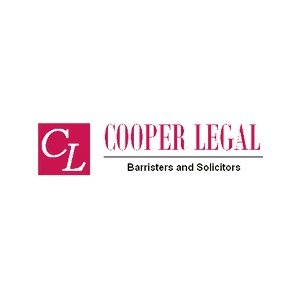Best Faith-Based Law Lawyers in Wellington
Share your needs with us, get contacted by law firms.
Free. Takes 2 min.
List of the best lawyers in Wellington, New Zealand
About Faith-Based Law in Wellington, New Zealand
Faith-Based Law in Wellington, New Zealand, refers to the set of legal principles and practices that interact with religious beliefs and doctrines. It encompasses issues that arise in religious institutions, including governance, the balance between religious freedom and secular laws, and the rights of individuals within religious contexts. Wellington, being the capital city, also serves as a hub for legal systems and policy developments that impact Faith-Based Law. This area of law often involves considerations of human rights, education law regarding religious schooling, and the protection of religious identities and practices.
Why You May Need a Lawyer
There are several situations where individuals or religious organizations may require legal assistance in Faith-Based Law:
- Dispute Resolution: Conflicts within religious communities or entities may require legal intervention.
- Religious Discrimination: If you face discrimination based on your religious beliefs, a lawyer can help address your rights.
- Incorporation and Regulation: Religious organizations might need help with incorporation, governance, or regulatory compliance.
- Education Law: Legal issues concerning faith-based education practices may require expert advice.
- Marriage and Family Cases: Cases involving religious customs in marriage, divorce, and family law often need specialized legal input.
Local Laws Overview
Wellington, like the rest of New Zealand, adheres to a legal framework that respects both the secular nature of the state and the rights to freedom of religion as outlined in the New Zealand Bill of Rights Act 1990. Key aspects related to Faith-Based Law include:
- Human Rights Act 1993: Protects against discrimination on religious grounds in employment, education, and access to services.
- Education Act 1989: Governs faith-based educational institutions and their adherence to national educational standards.
- Charitable Trusts Act 1957: Relevant for religious organizations operating as charities.
- Marriage Act 1955: Includes provisions for religious ceremonies in accordance with faith traditions.
Frequently Asked Questions
What is Faith-Based Law?
Faith-Based Law involves legal issues that intersect with religious beliefs and institutions, covering a wide range of topics from discrimination to religious education.
Is my religious organization eligible for charitable status?
Yes, many religious organizations can register as charities in New Zealand, provided they meet certain criteria set by the Charities Commission.
What legal protections exist against religious discrimination?
The Human Rights Act 1993 provides protections against discrimination based on religion in various sectors, including employment and education.
Can faith-based schools receive government funding?
Yes, faith-based schools can receive government funding if they meet requirements outlined in the Education Act and agreements with the Ministry of Education.
How does Faith-Based Law affect marriage ceremonies?
The Marriage Act 1955 allows for religious marriage ceremonies, with provisions respecting the diverse customs of different faiths.
What should I do if there's a conflict within my religious community?
Engaging a lawyer specialized in Faith-Based Law can help mediate and resolve disputes in accordance with legal standards and religious practices.
Are religious symbols allowed in public schools?
New Zealand schools have guidelines regarding the display of religious symbols, balancing educational policy and individual rights.
What is the process for incorporating a religious organization?
Incorporating a religious organization involves registration, establishment of a governing body, and adherence to regulations under the Charitable Trusts Act.
How are faith-based adoption practices regulated?
Adoption practices must comply with New Zealand's adoption laws, taking into consideration both legal and ethical faith-based perspectives.
What legal assistance is available for religious refugees?
Legal assistance for religious refugees includes support with asylum claims and integration, often provided by specialized legal services and NGOs.
Additional Resources
Here are some resources and organizations in Wellington that can provide legal advice or support related to Faith-Based Law:
- Ministry of Justice: Offers a wealth of information on human rights and discrimination laws.
- Community Law Wellington and Hutt Valley: Provides free legal help on various issues, including discrimination and charitable law.
- New Zealand Human Rights Commission: Can assist with complaints and provides resources on religious rights protections.
- Charities Services Website: Useful for understanding legal requirements for religious organizations seeking charitable status.
Next Steps
If you need legal assistance in Faith-Based Law, consider the following steps:
- Identify Your Legal Needs: Determine whether your issue is about discrimination, organizational governance, or another area of Faith-Based Law.
- Research and Contact Professionals: Look for lawyers or legal firms in Wellington with expertise in Faith-Based Law.
- Prepare Your Case: Gather all necessary documentation related to your issue, as this will be helpful for your legal counsel.
- Seek Consultation: Arrange an initial consultation to discuss your case and understand your legal options.
By taking these steps, you can navigate Faith-Based Law issues with greater confidence and ensure that your rights and interests are protected.
Lawzana helps you find the best lawyers and law firms in Wellington through a curated and pre-screened list of qualified legal professionals. Our platform offers rankings and detailed profiles of attorneys and law firms, allowing you to compare based on practice areas, including Faith-Based Law, experience, and client feedback.
Each profile includes a description of the firm's areas of practice, client reviews, team members and partners, year of establishment, spoken languages, office locations, contact information, social media presence, and any published articles or resources. Most firms on our platform speak English and are experienced in both local and international legal matters.
Get a quote from top-rated law firms in Wellington, New Zealand — quickly, securely, and without unnecessary hassle.
Disclaimer:
The information provided on this page is for general informational purposes only and does not constitute legal advice. While we strive to ensure the accuracy and relevance of the content, legal information may change over time, and interpretations of the law can vary. You should always consult with a qualified legal professional for advice specific to your situation.
We disclaim all liability for actions taken or not taken based on the content of this page. If you believe any information is incorrect or outdated, please contact us, and we will review and update it where appropriate.









